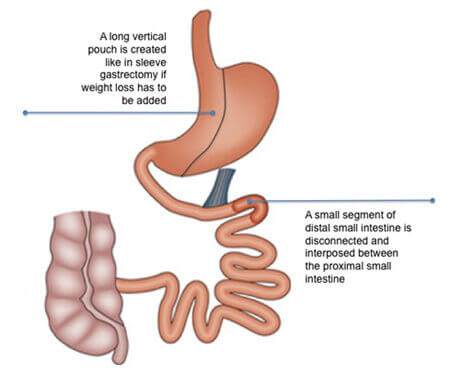Metabolic Surgery


Metabolic surgery
Metabolic surgery, also known as metabolic and bariatric surgery, encompasses a group of surgical procedures aimed at addressing not just weight loss but also enhancing metabolic conditions like type 2 diabetes, hypertension, and dyslipidemia. Typically intended for individuals with obesity and substantial obesity-related health concerns, these surgeries aspire to facilitate weight loss while also fostering improvements in metabolic well-being.

What are the benefits of metabolic surgery?
Diabetic or Metabolic surgery
Diabetic or metabolic surgery is a procedure designed to address diabetes, whether accompanied by obesity or not. In some cases, metabolic surgery is also employed for hypertension and dyslipidemia alone. Such surgeries are typically reserved for individuals whose blood parameters remain dangerously unmanageable despite maximum drug doses, posing a threat to their lives.
The objective of surgery for diabetes is to enhance control over blood sugar (glycemic levels) among patients with Adult Onset or Type 2 Diabetes Mellitus (T2DM). Certain procedures like Gastric Bypass and Bilio-pancreatic diversion have exhibited the ability to control or even cure diabetes. However, these surgeries are generally suitable for individuals with a body mass index (BMI) exceeding 30. To address the necessity for diabetes management in non-obese patients, techniques such as Ileal Interposition surgery or Duodenojejunal bypass surgery have been developed. These procedures cater to diabetics who don’t necessitate gastric bypass. It’s even possible to perform these surgeries in thin Type 2 diabetics with a BMI as low as 27.5 or with sleeve gastrectomy in overweight/obese diabetics. This approach proves effective if the C-Peptide blood test yields a value greater than one. An HbA1c level above eight suggests poor control. This surgical intervention can halt complications associated with diabetes unless organ damage has progressed beyond repair.
Consequently, this surgical approach can comprehensively manage diabetes, arrest the metabolic syndrome’s deterioration of bodily organs, and thereby avert future diabetic complications. It also leads to the complete control or significant improvement of high blood pressure and high cholesterol/triglyceride levels. The body’s excess weight is shed, fostering overall longevity and good health.